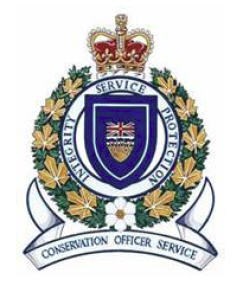
Conservation officers were able to decontaminate a mussel infested boat heading for Okanagan Lake.
Image Credit: Wikipedia
March 20, 2014 - 4:44 PM
PENTICTON -- Canada Customs got lucky last week when an officer spotted what appeared to be invasive mussel species attached to a boat crossing the Osoyoos border headed for Lake Okanagan.
Legally, customs officers have no authority to hold travellers back from crossing the border if their watercraft is infested with mussels. They got lucky when the driver agreed to pull over for further inspection and wait for conservation officers to arrive and complete a full decontamination procedure.
A customs officer familiar with the Don’t Move A Mussel campaign recognized the mussel attached to the boat and had the driver pull over for further inspection. The officer notified B.C. Conservation Officer services who confirmed the suspicion and took action.
The invasive species has not been found in B.C. waters before, but since border officers have no legal authority to stop infested watercraft, uncooperative drivers can drive into the province and risk contamination of waters.
The Okanagan Basin Water Board, who issued a press release yesterday about the incident, estimate the species would cost $40 million a year in damage to ecosystems across the province if they were to invade.
Coincidentally, B.C.’s Legislative Assembly was discussing proposed mussel legislation the day before Canada Customs stopped a boat from coming across the Osoyoos border.
There is currently no federal legislation that says customs and border officers have to inspect watercraft for live or dead mussels before they cross the U.S. border into Canada. However, the Water Board has been urging federal authorities to set regulation in place since 2011. The federal government is also sitting on legislation that would require inspection stations at the Canada/U.S. border.
B.C. Legislature is in the process of drafting an early detection response plan that will be complete this spring. They are also working on other initiatives to ensure awareness and education so that there are no oversights by the public or concerning officers.
Invasive mussels pose a threat to hydro, freshwater ecosystems, fisheries, and agriculture irrigation and other water sources, among others.
To contact the reporter for this story, e-mail Meaghan Archer at marcher@infotelnews.ca, or call 250-488-3065.
News from © iNFOnews, 2014